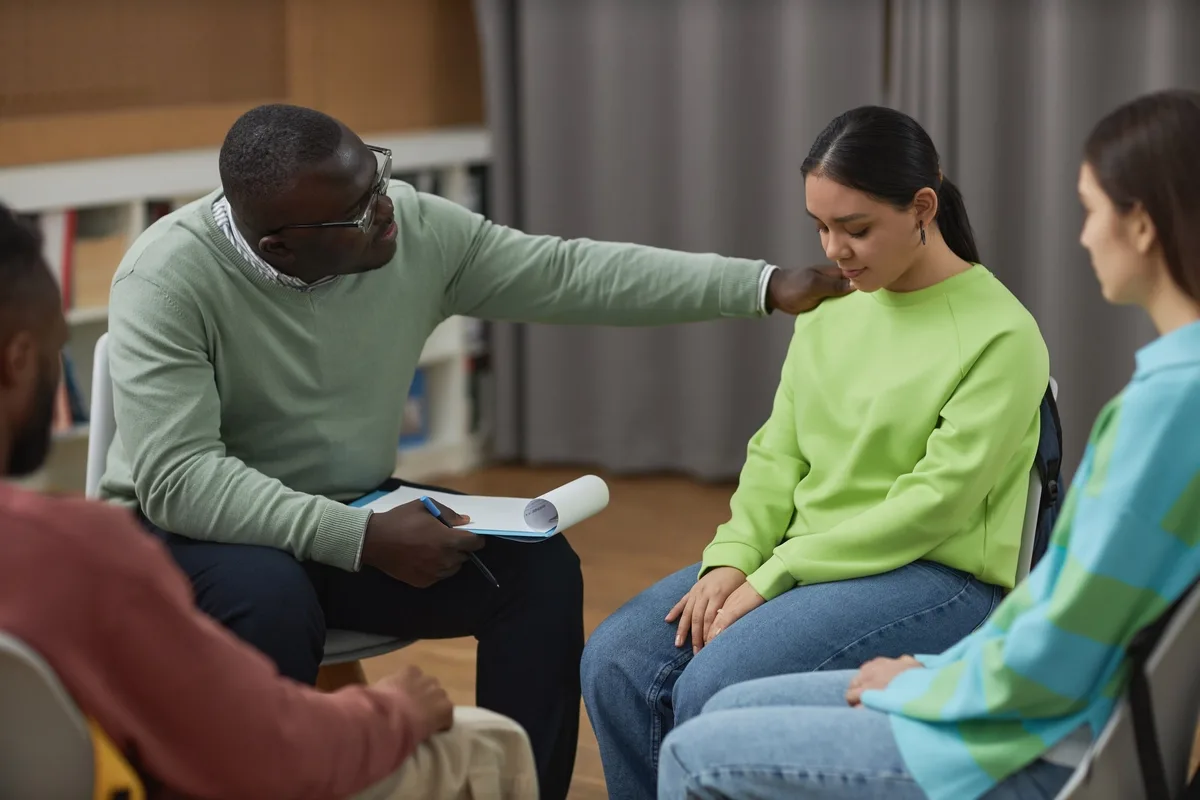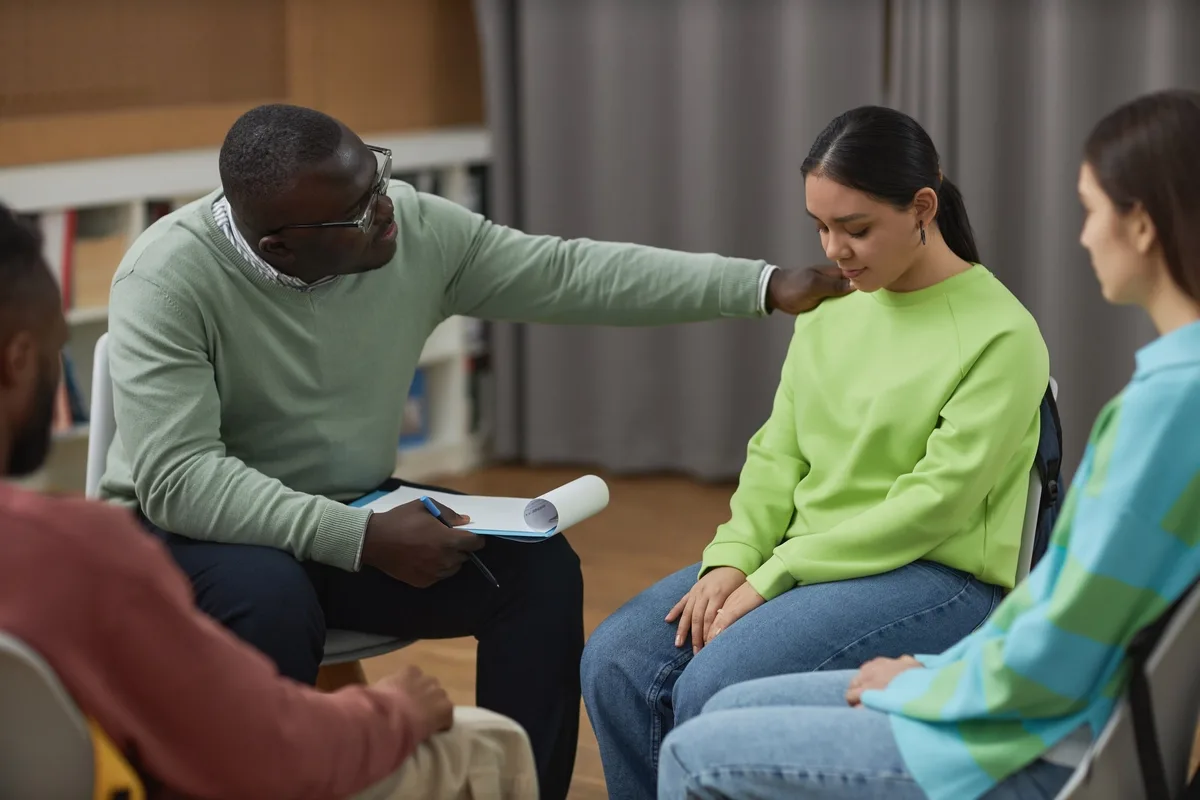24/7 Helpline:
(866) 899-111424/7 Helpline:
(866) 899-1114
Learn more about PTSD Rehab centers in Merlin
PTSD Rehab in Other Cities

Other Insurance Options

Medical Mutual of Ohio

Self-pay options

Holman Group

CareSource

Oxford

Humana

Molina Healthcare

Magellan

AllWell

Choice Care Network

Meritain

Providence

WellPoint

American Behavioral
Beacon

Magellan Health

CareFirst

Cigna

Horizon Healthcare Service

Health Choice










Choices Counseling Center
Choices Counseling Center is a private rehab located in Grants Pass, Oregon. Choices Counseling Cent...

Ontrack
Ontrack is a non=profit rehab located in Grants Pass, OR. Ontrack have and intensive and regular out...

U Turn For Christ
U-Turn For Christ is a two-month minimum residential ministry of restoration for men struggling with...

Royale Gardens Health and Rehab
Royale Gardens Health and Rehab is a private rehab located in Grants Pass, Oregon. Royale Gardens He...
























































Options for Southern Oregon – Creekside
Options for Southern Oregon – Creekside is a private rehab located in Grants Pass, Oregon. Options f...

Kairos New Beginnings
Kairos New Beginnings is a private rehab located in Grants Pass, Oregon. Kairos New Beginnings speci...

Josephine County Community Corrections – Substance Abuse Program
Josephine County Community Corrections – Substance Abuse Program is a public rehab located in Grants...

ADAPT
ADAPT is a private rehab located in Grants Pass, Oregon. ADAPT specializes in the treatment of alcoh...

Dual Solutions Continuum of Care
Dual Solutions Continuum of Care is a non-profit rehab located in Grants Pass, Oregon. Dual Solution...

KAIROS
KAIROS is a private rehab located in Grants Pass, Oregon. KAIROS specializes in the treatment of Men...




































